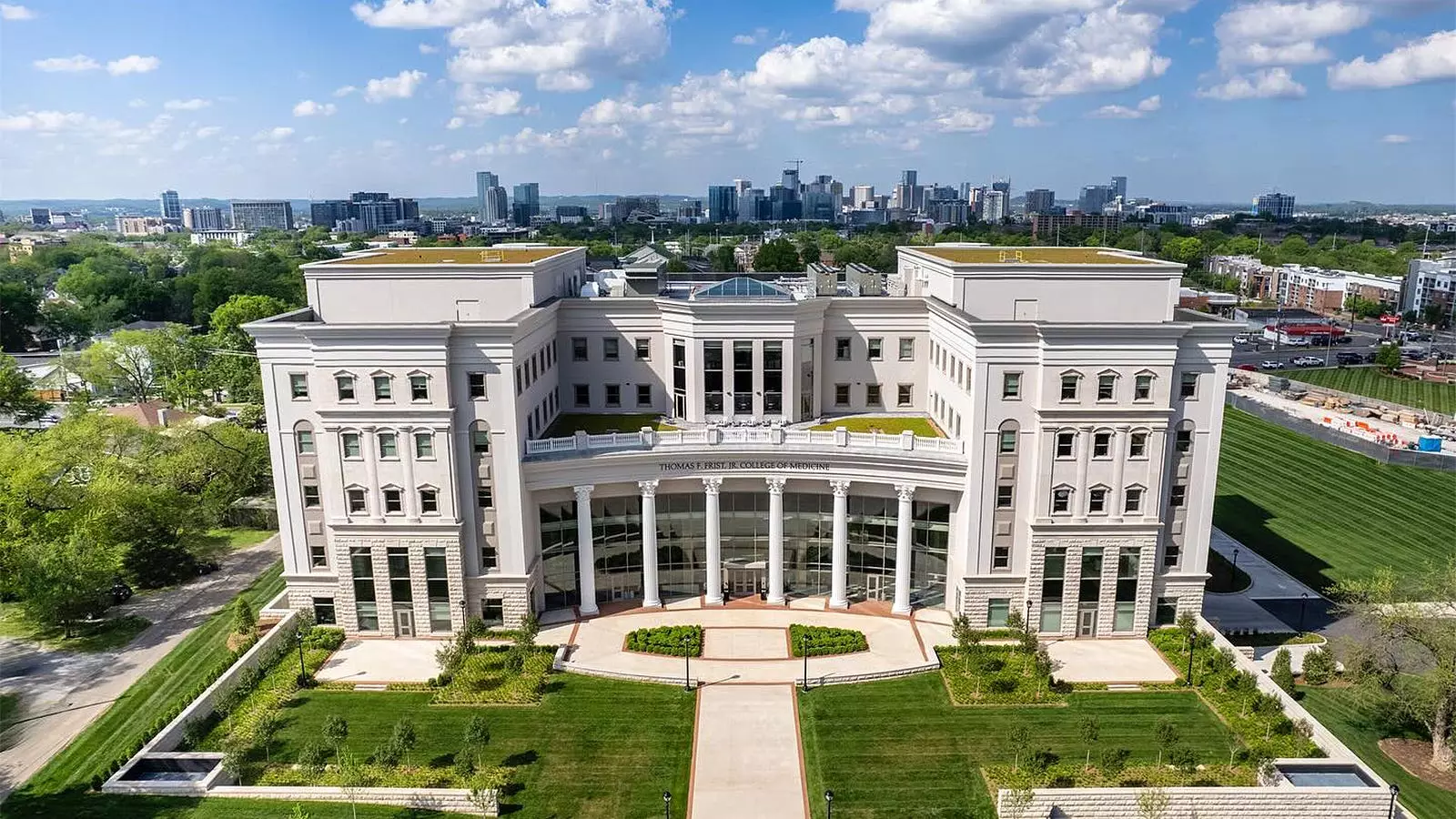In an era where healthcare needs are constantly evolving, the establishment of the Thomas F. Frist, Jr. College of Medicine at Belmont University marks a significant milestone for medical education in Tennessee. Recently, the medical school welcomed its inaugural class, consisting of 50 students who were ceremonially cloaked in white coats, symbolizing the outset of their medical journey. This move not only expands the medical educational landscape in Nashville but also reflects a strategic partnership with the renowned HCA Healthcare, a major player in the U.S. healthcare sector.
Belmont University’s latest venture has garnered attention, especially considering it is Nashville’s third medical school and Tennessee’s sixth. Such developments indicate a growing recognition of the necessity for more healthcare professionals to cater to an increasing patient population. The incoming class of 2028 demonstrates impressive academic credentials, with a median MCAT score of 509 and a GPA of 3.64, suggesting a competitive selection process that attracted a diverse pool of applicants—1,368 in total.
Diversity in medical training provides a broader understanding of patient backgrounds and health considerations. The Thomas F. Frist, Jr. College of Medicine stands out with its commitment to inclusivity, as evidenced by its 54% female enrollment and the 24 different languages spoken among students. Such diversity can play a vital role in fostering culturally competent healthcare providers, who understand and respect the varied backgrounds of their future patients.
Moreover, the college actively promotes the importance of rural healthcare access by awarding scholarships specifically for students committed to serving in rural communities. This approach addresses a critical shortfall in healthcare availability in less populated areas, ensuring that graduates are equipped to meet the distinct challenges faced by these regions.
The collaboration with HCA Healthcare is pivotal for the college’s operational framework and future ambitions. HCA, with its extensive network comprising 68 physician practices and 15 urgent care centers, is set to offer substantive clinical training experiences. Students will participate in core clinical clerkships in their third year and clinical elective rotations during their fourth year, facilitating a rich, hands-on educational experience that is essential for developing competent and capable physicians.
Former Belmont University President Bob Fisher emphasized the mutual benefits of this partnership, asserting that HCA’s involvement will provide students with exceptional faculty membership and a direct pathway to residency opportunities. This collaborative approach is seen as vital in developing a future-ready workforce in the healthcare sector.
The establishment of this medical school also honors the legacy of its founders, Jack Massey and the Frist family. The historical ties between HCA and Belmont University underscore the shared vision of fostering excellence in healthcare education and practice. The choice of naming the institution after Thomas Frist Jr., M.D., resonates deeply within the context of a university that has long associated itself with significant contributions to the medical field.
Additionally, the new $180 million facility, with 198,000 square feet designated for medical education, serves as a testament to the commitment to creating a state-of-the-art environment for learning and innovation. This investment not only enhances the college’s operational capabilities but also positions it as a formidable contender in the sphere of medical education.
As this medical school embarks on its inaugural year, the future appears promising. The goal of producing well-trained physicians who are prepared to face the healthcare challenges of tomorrow aligns seamlessly with known metrics of educational excellence and community service. The integration of diverse student backgrounds, strong clinical training, and a strategic partnership with HCA Healthcare will undoubtedly shape the next generation of medical practitioners in Nashville and beyond.
The Thomas F. Frist, Jr. College of Medicine is not just building a foundation for medical education; it implores a comprehensive and community-centered approach to healthcare. With such an ambitious start, the program could very well redefine what it means to be a physician in the modern era, prioritizing access, inclusivity, and excellence above all else.


Leave a Reply